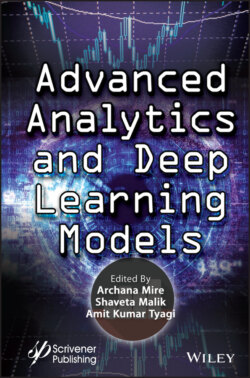Читать книгу Advanced Analytics and Deep Learning Models - Группа авторов - Страница 60
3.3.5 Collaborative Filtering Approach
ОглавлениеThis technique is immense popular technique among all the multi-criteria recommender system. It interacts with multiple users and generates the recommendation list. If user1 has similarities in their preference with user2, then the item which is recommended to user2 will also be recommended to user 1. The hypothesis behind the following approach is that the clients agreeing other clients in the past will also agree in the future. For a new item, the relationship with user is determined by other users’ review. We can represent as user terms matrix where each cell of the matrix represents the ratings given by clients for a particular item [1].
CF can be divided into two classes: model-based and memory-based. The memory-based approach is a kind of heuristic algorithm. It estimates the item’s rating which depends on another client’s ratings. It can also be classified into two methods: item-based and user-based. The other one, memory-based approach, recommends items based on the similar interests on other users. It analyzes the behavior of other clients like they purchased or liked or viewed before and then recommend the product to this client [1].
CF approaches have many advantages compare to all other filtering approaches like, sometimes, novel and unfamiliar items are recommended, it is very suitable and flexible in various domain, and it does not need to analyze the contents of a particular item [1].
These are some of the advantages of CF in MCRS.
